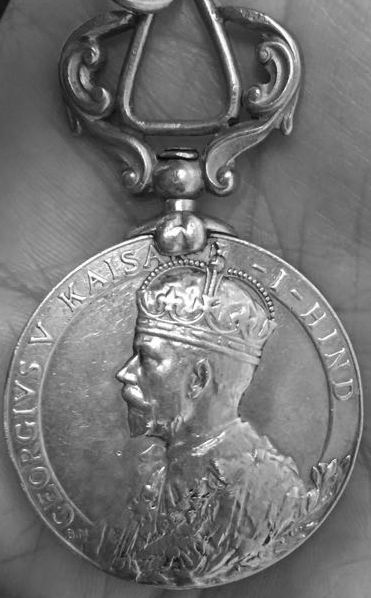
Jashanmal Jhamatmal Gulrajani was manager of the Oriental Insurance Company in charge of Karachi and Hyderabad districts, a well-to-do and respectable man, and had purchased a tract of land in Malir, when he had to leave Sindh on 15 minute notice.
Saaz Aggarwal
Ram Gulrajani was twelve years old and clearly remembers the hurried visit from a Karachi inspector of police to his family home in Karachi in early December 1947.
Till then, Karachi had continued to be a peaceful place. The family had not considered leaving. Ram’s father, Jashanmal Jhamatmal Gulrajani, had a prestigious job: he was manager of the Oriental Insurance Company in charge of the Karachi and Hyderabad districts, a well-to-do and respectable man. Jashanmal had recently purchased a tract of land in Malir, an attractive but distant suburb of Karachi at the time, near Drigh Road Airport. The 100 acres stretched from India’s anti-aircraft gun school, the Ack-Ack School, all the way up to the Malir River. Cultivation had not yet started but the family occasionally rented the fields for grazing camels and cattle. His two elder sons had recently taken up jobs with BOAC and Military Aviation Fuelling Depot, both located at Drigh Road.
The policeman who had rushed to their house to warn and save them was well known to the family. His father had worked in their garden for many years, and Jashanmal and his brothers had educated him, and helped him to find a position in the police force. “Diwan Sahib, you must leave,” he said. “You and your family are in danger and if you don’t go now you will be killed. I can’t hold them back for more than fifteen minutes.” He had arranged for a truck and the family piled in with their belongings.
One of the precious historic belongings that remains in the family is a Kaiser-e-Hind medal awarded to Valiram Jhamatmal Gulrajani, Jashanmal’s eldest brother, for services rendered to Empire during the First World War.
It’s impossible to know what could be going through the mind of someone scrambling to get into a truck to save their lives, with just fifteen minutes to pack what they can carry as they leave their comfortable homes for new and uncertain lives. One of the precious historic belongings that remains in the family is a Kaiser-e-Hind medal awarded to Valiram Jhamatmal Gulrajani, Jashanmal’s eldest brother, for services rendered to Empire during the First World War.
The medal, engraved with his name, was preserved carefully by the family through all the years of struggle that followed. In time, it was handed over to Valiram’s only son Vishno who had migrated to USA, who passed it on to his daughter Kamlu.
Jashanmal himself had been conferred with an honorary rank of Captain in the British Indian Army for his contribution to managing army supplies in Karachi during the Second World War.
What must have been Jashanmal’s feelings as he quickly packed his dear brother’s prized medal and a few other family treasures, his horror when he realized that his property documents were not in the house? Perhaps the full implication did not strike him at the time; perhaps he believed that this was a temporary setback and life would be back to what it had been before.
Jashanmal himself had been conferred with an honorary rank of Captain in the British Indian Army for his contribution to managing army supplies in Karachi during the Second World War.
Sadly, this never happened. Resettling in the faraway land, the family had nothing to prove that they owned land in Karachi, and as a result, they would never receive compensation. Jashanmal, with all his wealth and prestige snatched away overnight, condemned to life with his family in a dirty and disorderly refugee camp barracks, felt overcome with helplessness. Unable to reconcile himself to Partition and to his new life, he never regained his former self. His wife Sundri was a strong person and she held the family together. The daughter of Kundanmal Khanchandani, an education inspector of Hyderabad district, Sundri herself had a school education and a forward-thinking mind. She and her sister Gopi were both educated, and could read Sindhi, Gurmukhi and English. Their mother, Tikibai, came from a Sikh family and her father kept long hair, as their forebears had done. Tikibai too practiced Sikhism and Sundri, brought up as a Sikh, kept a Guru Granth Sahib at home and solemnly observed all Sikh rituals as many Sindhi families of her generation did. She also brought up Ram to be a Sikh, but without growing his hair.
Jashanmal, with all his wealth and prestige snatched away overnight, condemned to life with his family in a dirty and disorderly refugee camp barracks, felt overcome with helplessness.
The truck with Jashanmal’s family was packed and everyone was on board within the given fifteen minutes. It was driven to the house in which the newly-installed Indian High Commissioner, Sri Prakasa, lived. The family disembarked with their meagre possessions and were herded into the compound where many others had been given shelter.
After two days in the crowded compound, people were taken to the Karachi docks and Ram remembers being herded again, like sheep, into ships. The SS Ekma took them to Bombay where, on arrival, they were taken by government officials to the Victoria Terminus. The railway station was packed with people and they were being herded into trains to destinations across the country. Special trains had been arranged and empty ones requisitioned to take the non-Muslim refugees from Pakistan to various parts of India where provision had been made for temporary accommodation. Families occupied every space in the station, waiting with the meagre possessions they had escaped with. The crowded railway station was filled with these homeless people who did not know which place they would be allotted to or what they would do once they got there. Trains came and went every ten or fifteen minutes. The toilets were filthy. After two days, the Gulrajani family were put on a train to Madras.
On arrival, they were taken to the Avadi Immigration Barracks and given accommodation which would be their home for two years. After that, they went to Vijaywada where the family made their first home in independent India. Ram completed his schooling in Vijaywada with a distinction and an all-India rank of eight in the Senior Cambridge examination. Despite this achievement, it took five years before Ram could continue his education. During this time he went to work in Bombay, where his two elder brothers had settled, doing odd jobs (‘as a nobody to a somebody’). The rest of the family moved there too.
Ram continued working even when he joined college five years later. Lectures were held in the morning so that students could go to work and he would wake early for college, spend the rest of the day continuing with his jobs and then gave tuitions in the evening. He and his siblings all helped school children with their studies, partly for the income but more because they could help and enjoyed doing so. It was a time of intense hard work to make ends meet. With wholehearted support for each other, the family bonds grew even stronger. Sadly, Sundri died in 1957 and Jashanmal followed soon after, in 1961.
They left behind a strong legacy which their descendants have faithfully adhered to: be honest and educate yourself.
(Excerpted from The Amils of Sindh by Saaz Aggarwal – black-and-white fountain (2018)
_________________
 Saaz Aggarwal is an independent researcher, writer and artist based in Pune, India. Her body of writing includes biographies, translations, critical reviews and humor columns. Her books are in university libraries around the world, and much of her research contribution in the field of Sindh studies is easily accessible online. Her 2012 Sindh: Stories from a Vanished Homeland is an acknowledged classic. With an MSc from Mumbai University in 1982, Saaz taught undergraduate Mathematics at Ruparel College, Mumbai, for three years. She was appointed features editor at Times of India, Mumbai, in 1989.
Saaz Aggarwal is an independent researcher, writer and artist based in Pune, India. Her body of writing includes biographies, translations, critical reviews and humor columns. Her books are in university libraries around the world, and much of her research contribution in the field of Sindh studies is easily accessible online. Her 2012 Sindh: Stories from a Vanished Homeland is an acknowledged classic. With an MSc from Mumbai University in 1982, Saaz taught undergraduate Mathematics at Ruparel College, Mumbai, for three years. She was appointed features editor at Times of India, Mumbai, in 1989.
Courtesy: Bland White Fountain/ Saaz Aggarwal